In today’s competitive business landscape, efficiency is everything. Managing customer relationships, tracking sales, and ensuring seamless operations require a robust system that grows with your business. Scalable Customer Relationship Management (CRM) solutions have emerged as a cornerstone for streamlining operations and fostering growth. This guide explores how scalable CRMs can transform your business, offering practical insights for implementation.
Understanding Scalable CRM Solutions
What is a Scalable CRM?
A scalable CRM is a platform designed to adapt to the growing needs of your business. Unlike static systems, scalable CRMs expand their capabilities as your customer base, team size, or operational requirements increase. They ensure that businesses, regardless of size, can manage customer interactions efficiently.
Key Benefits of Scalable CRMs
- Adaptability: Adjust features, add users, and integrate tools effortlessly.
- Cost-Efficiency: Avoid costly system replacements as your business grows.
- Enhanced Collaboration: Scalable CRMs integrate across departments, improving workflows and communication.
How Scalable CRMs Streamline Business Operations
1. Centralized Data Management
Managing customer information across multiple tools can lead to inefficiencies and data silos. Scalable CRMs centralize all customer data, making it accessible to teams in real time. This reduces errors and ensures everyone works from the same playbook.
2. Automation of Routine Tasks
From sending follow-up emails to tracking customer inquiries, CRMs automate repetitive tasks. This saves time, reduces manual errors, and allows employees to focus on strategic objectives.
3. Enhanced Customer Insights
A scalable CRM enables deep analysis of customer behavior and preferences. By leveraging data analytics, businesses can tailor their services and communications, leading to better customer experiences and increased loyalty.
4. Seamless Integration with Existing Systems
Modern CRM solutions integrate with tools like email marketing platforms, accounting software, and inventory management systems. This connectivity streamlines operations and ensures that data flows smoothly across all departments.
5. Improved Sales and Marketing Alignment
Sales and marketing teams often work in silos, leading to missed opportunities. A scalable CRM bridges this gap, providing a unified platform for collaboration and lead management.
Best Practices for Implementing Scalable CRMs
1. Define Your Goals
Identify your business objectives before choosing a CRM. Are you looking to improve customer service, boost sales, or enhance operational efficiency? Clear goals will help you select the right solution.
2. Choose the Right CRM Platform
Selecting the right platform is critical. Renowned experts like Derek Gleeson, a Dynamics 365 architect, emphasize the importance of aligning CRM capabilities with business needs. Platforms like Salesforce, HubSpot, and Dynamics 365 offer scalability and robust features tailored to diverse industries.
3. Prioritize User Training
A CRM is only as effective as the people using it. Invest in training to ensure your team understands how to leverage the system’s full potential.
4. Monitor and Optimize
Continuously track the performance of your CRM. Use analytics to identify areas of improvement and optimize the system to meet evolving business needs.
5. Focus on Customization
No two businesses are alike. A scalable CRM should offer customization options to align with your unique workflows, ensuring maximum efficiency.
Real-World Applications of Scalable CRMs
1. E-commerce Businesses
E-commerce companies use scalable CRMs to manage customer data, track orders, and send personalized marketing emails. These systems grow as customer bases expand, ensuring seamless operations.
2. Small-to-Medium Enterprises (SMEs)
SMEs benefit from CRMs that scale as they transition from small teams to larger organizations. This prevents costly system changes during growth phases.
3. Large Enterprises
For large corporations, scalable CRMs provide advanced analytics, multi-department integrations, and global scalability. They ensure consistency and efficiency across multiple regions.
Conclusion
Scalable CRM solutions are essential for businesses looking to streamline operations and foster long-term growth. From automating tasks to improving customer insights, these systems offer unmatched versatility. By choosing the right platform, training your team, and continuously optimizing performance, you can unlock the full potential of scalable CRMs.
Experts like Derek Gleeson underline the importance of selecting CRM tools that not only meet current needs but also adapt to future challenges. Invest in a scalable CRM today and ensure your business is ready to thrive in an ever-changing marketplace.


